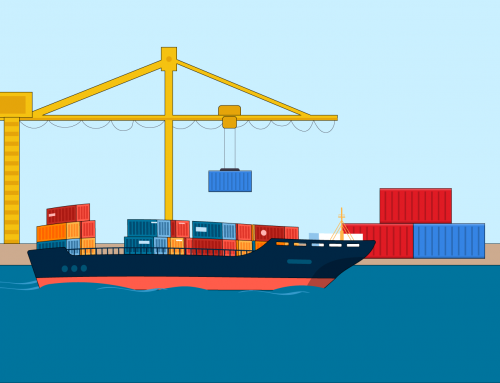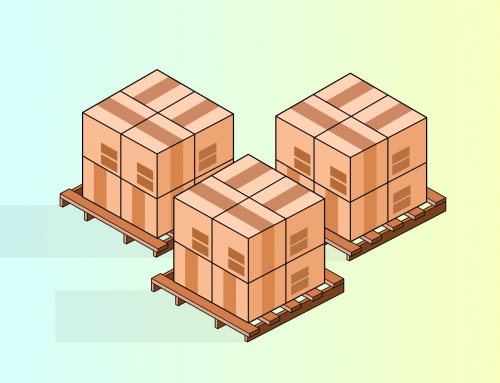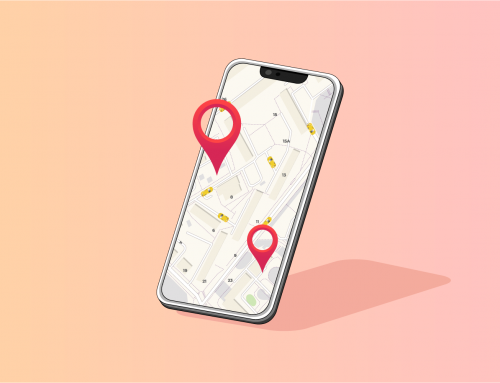What is the best point to agree on Best Incoterms:
The best Incoterm to use and point at which to agree, apply and use an Incoterm, is dependent on the type of trade; the product involved and the experience + objectives of the parties involved. You need to choose an Incoterm that suits the circumstances.
Click here to listen to the audio blog version.
Ask An Expert
Discussion with renowned global trade expert Murdo Beaton and Abdul Mann, creator of the cloud-based export solution EdgeCTP.
Geoff:
OK, today’s questions for you: what is the best Incoterm to use and when do we agree, apply or use Incoterms?
Murdo:
The use of Incoterms (international commercial terms) is again a matter that has to be agreed between the parties to the contract. Both parties must agree to the use of Incoterms. When should Incoterms be agreed upon? I would very much suggest that this agreement takes place at the earliest possible stage during negotiation, or at least towards the conclusion of the contract to trade, however, the best time is at the negotiation stage of the supply contract.
Abdul:
So when a buyer comes to me and they say: “Can you deliver me a widget?”, that’s the point that I’m saying which Incoterm we use.
Murdo:
Exactly.
Abdul:
And how do we go about choosing the correct Incoterm?
Murdo:
The selection of the best Incoterm to use, of which there are eleven, depends on the aspirations of both parties. Now, one would argue that as far as the export is concerned, it probably would be a better option for the exporter to use the term “ExWorks”, because in this Incoterm the export does very little in terms of delivery and simply promises to deliver the goods to their own factory gates, so the importer/buyer must take all responsibility for collecting and shipping the goods back into their home country. This would certainly be a consideration for exporters who are not wholly experienced in the area of international trade, but for those more experienced exporters, it may be that the use of another Incoterm, which takes the delivery point closer to the buyer’s premises, might have some marketing advantage. That is, reduce the ‘burden’ of delivery for the buyer and thereby making it easier to buy.
Abdul:
So the more experienced you are as an exporter the better service you can deliver to your buyer, which means you choose an Incoterm that brings the goods closer to the buyer, from ExWorks, pretty much do nothing about exporting and the buyer does everything, to DDP (Delivery and Duty Paid), where you as an exporter do everything and deliver right to the buyer’s door.
Murdo:
Yes, for a new exporter ExWorks might seem sensible, but for a more mature exporter, they might look at it differently, and consider another Incoterm that could give them a competitive advantage.
Now there are of course other reasons why the use of a particular Incoterm may be driven by external forces. For instance, if I am exporting goods that are subject to export licenses, and I decide to use the Incoterm ExWorks, where it is the buyer’s responsibility to look after issues relating to export and import, I may however, find myself responsible for dealing with the Custom Authorities of my home country in obtaining and presenting an export license to them properly.
Now, do I leave that up to the buyer or should I be processing the export license? To make sure that the export licensing authorities will not come knocking on my door and say “Why were these goods exported without a license?”, especially, if the export procedure had not been properly dealt with! So here I might have to consider ExWorks as not being appropriate and maybe now I should use an Incoterm that takes my responsibility beyond the location of my own Customs Authorities.
Abdul:
So just to summarise then, you want to be able to choose or agree between both parties, on an Incoterm to use as soon as possible in the contract negotiation, and then use one that’s applicable to the circumstances for the country to which you’re exporting to, and take into account the experience of the exporter and importer as well. If the importer is naïve in international trading and doesn’t know how to get your product from end to end efficiently, then choosing an Incoterm that meets their and your needs are vital.
Murdo:
Absolutely! On the other hand, it may also be that the importer is a well-established importer, and commonly imports goods from all over the world. In so doing they may have developed relationships with certain carriers that allow the importer to enjoy very preferential rates. Rates that you may not be able to offer the importer in your costing. So here the importer may determine it is economically better for them, since they have the skills to do it, to actually come to your country and pick up the goods.
Abdul:
But if you still have to get an export license, the responsibility of making sure the export license is obtained and defined to the authorities, is yours as the exporter if the goods?
Murdo:
Well the Incoterm, depending on which one you use, but if you were using the ExWorks for instance, the Incoterm determines that the buyer has responsibility for that. But, you are a company in that particular sovereign state and you must have some responsibility toward making sure that the regulations of that sovereign state are adhered to. So if there is the issue of an export license I would probably be suggesting that the exporter would be best positioned to control that matter themselves, rather than assign it to the overseas buyer. In that regard, one would then say there might be limitations on the use of ExWorks.
Geoff:
I hope you enjoyed this. If you’d like more information on international trade, go to www.edgectp.com






